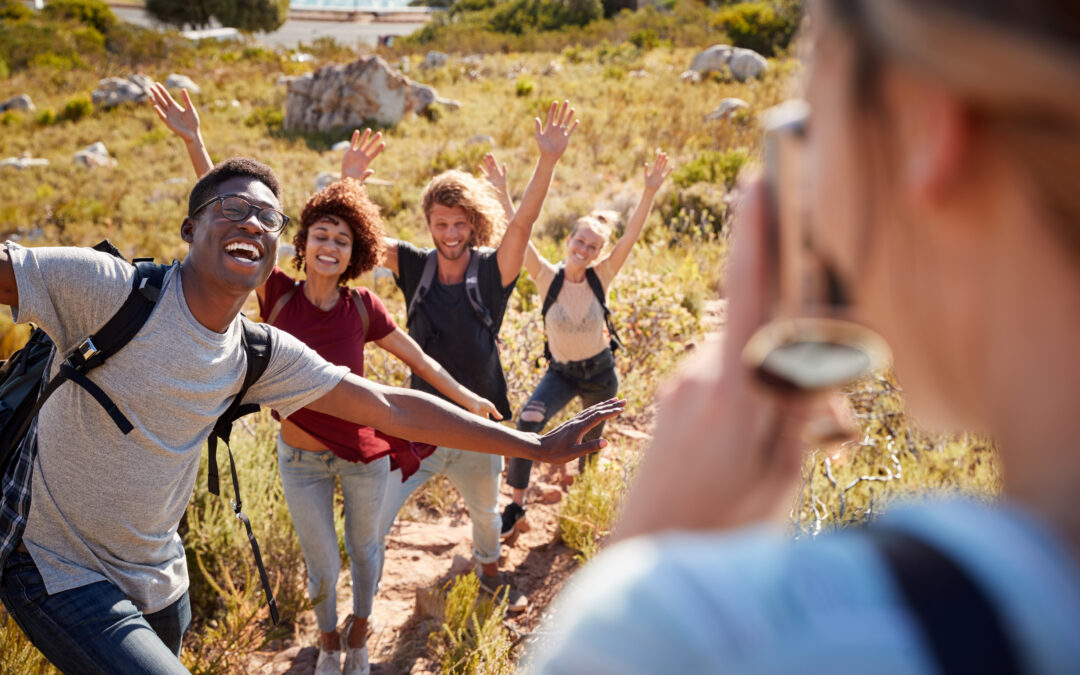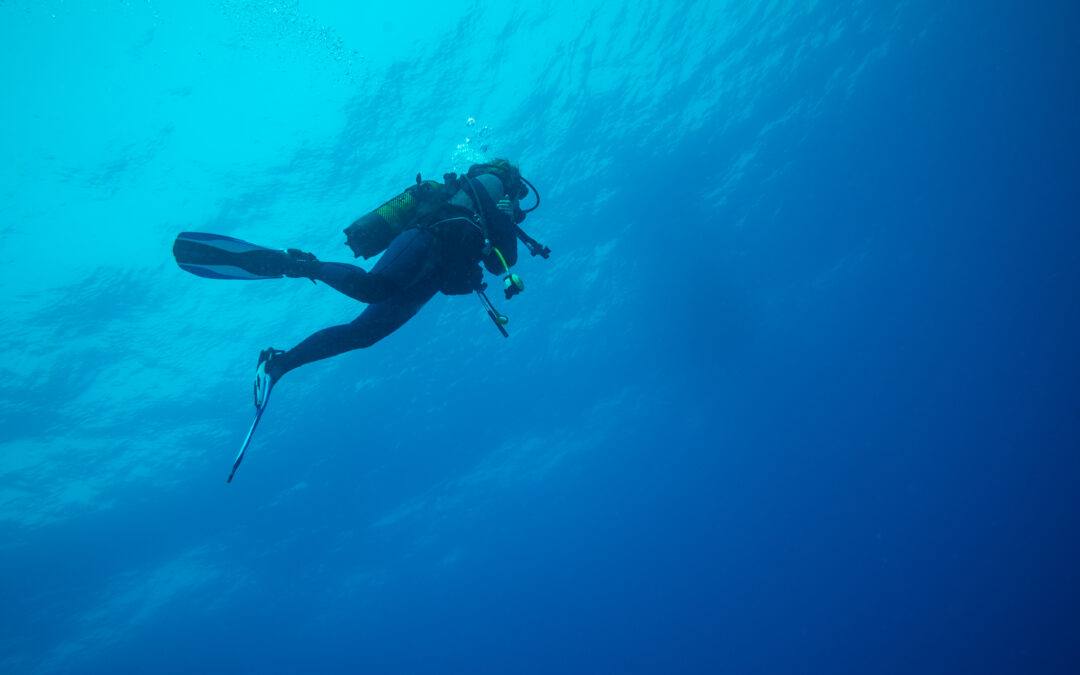
It’s no secret why we travel: It makes us feel good. Sometimes it’s the relaxing-on-a-beach kind of feel-good, other times it’s the tucking-into-a-delicious-meal kind of feel-good or the awed-appreciation-of-art-and-architecture kind of feel-good. And sometimes it’s the good feelings that come from expanding your understanding of yourself and the world as you experience unexpected new things. These adventures nourish our mind and soul, and whatever kind of feel-good you’re after, there’s a way of traveling that will get you there.
But that’s not to say that travel isn’t without its flaws. Travel is a luxury, and it’s a practice and an industry with origins in colonialism. For all the good it can do, travel can also enable exploitation, abuse, inequality, waste creation and resource depletion if not done carefully and mindfully.
To help you be careful and mindful about travel, and therefore get all the feel-good feels and self-nourishment you’re after, here is a list of ways to do better while traveling this year.
1. Visit less-touristed destinations
Overtourism is an issue for the travel industry, the planet and locals living in overtouristed destinations. A heavy influx of foreign visitors prices locals out of the market, wears down nature and creates waste beyond what can be managed by local infrastructure, among other issues.
A simple solution is for travelers to diversify their destinations and try out less visited, more off-the-beaten-path locations. Think Finland instead of Iceland, Choquequirao instead of Machu Picchu, Lyon instead of Paris. Your money will support local economies with greater need than those over-visited spots, and your experience will be less crowded and more unique. It’s a real win, win.
2. Avoid slum and poverty tourism
In places like Brazil and South Africa where slums, poverty and oppression play a sobering role in local history and culture, it is understandable that foreigners might feel compelled to tour favelas and townships to learn about how they came to be.
But the money you spend on tours of these areas rarely if ever benefits the locals living in those communities, who are most in need of support but who are dehumanized in the eyes of both locals and foreigners when they are treated as spectacles. The same is true of visits to orphanages. The money generated by these kinds of tours also works to keep inequality entrenched; local governments and causes are less likely to work to solve the issues that create slums and impoverished areas if those slums and impoverished areas become attractions that drive tourism. Instead, spend time learning about local history and culture in museums and look for trusted, vetted local charities and community causes to donate to.
3. Avoid tourism that promotes animal exploitation and abuse
Like visits to slums and orphanages, visits to zoos, farms, circuses and even animal shelters and rescues ought to be reconsidered and, at the very least, highly researched. Understandable as it is to dream of photos atop an elephant or petting a big cat, these acts are considered animal exploitation and the businesses that offer the opportunities are often places of animal abuse, even if they claim to be rescues and shelters.
Instead, look for opportunities to see animals in their natural habitats, as unaware of human presence as possible. It might be a more costly trip with less direct interaction, but it provides a better experience for the animal while diverting funds away from exploitive and abusive practices.
4. Bring a reusable water bottle
An easy fix to a big problem—bring your own reusable water bottle to cut down on single-use plastic waste. Many countries, especially those in the developing world, do not have the recycling infrastructure to handle the influx of plastic waste generated by tourism, leading to severe ecological damage. And if you’re concerned about drinking water safety while traveling abroad, we have a whole guide to help with that.
5. Book with local providers
International tourism is an essential source of income for many locations, but when booking with large-scale international travel companies, much of the financial support is never returned directly to the local community.
To combat this, do your best to book with local providers, or with international companies who partner directly with local providers and experts, companies like elsewhere.io and EatWith.
6. Pay for carbon offset
Many airlines and travel providers offer options to pay a bit more to offset the carbon footprint of your trip. And while these small additions can feel like fees or choices to make your trip more expensive in a way that you don’t see the direct result of, they contribute to a trend toward traveler and corporate responsibility and accountability in an industry that greatly contributes to ecological damage. Sure, you’ll still get the same trip if you opt-out of carbon offset, but doing what you can to be part of a paradigm shift is certainly something to feel good about.
7. Be selective about who you book with
Every choice you make about where you spend your money while traveling is a chance for you to have an impact and direct demand toward the kind of world and travel industry you want to see and away from the one you don’t. From airline choice to booking with a local versus an international provider, renting an apartment or booking a hotel room, or eating at restaurant A or restaurant B, it all adds up. That provides an opportunity for you to “vote with your dollar” for companies and businesses that have stated corporate commitments, values and social responsibilities that benefit the planet and its people.
Many businesses involved in the travel industry have committed to sustainable practices, and they’ll say so on their website. Those are the businesses you can feel good about supporting. Want to support a business that doesn’t make mention of values, commitments or social responsibilities? Email or reach out on social media to ask why not. These are small, easy actions that can have big, world- and industry-wide implications.
8. Leave destinations better than you found them
Anyone who’s spent time in national parks or other outdoor spaces will be familiar with the idea of “leave no trace.” Often that’s in reference to cleaning up after yourself and being sure not to litter, but it can be a grander notion as well. Whether you are supporting the local economy, donating to vetted worthy causes, leaving reviews for local businesses that will help them find new clients and customers, or simply cleaning up after yourself on your way out, leaving a place better than it was when you found it is something to feel very good about.
Now that you know what you can be doing to feel good while traveling this year, the world is yours to explore and improve.

Sign up to get new posts from Healthy Travel Blog directly in your inbox!
By submitting this form, you are consenting to receive marketing emails from: . You can revoke your consent to receive emails at any time by using the SafeUnsubscribe® link, found at the bottom of every email. Emails are serviced by Constant Contact

